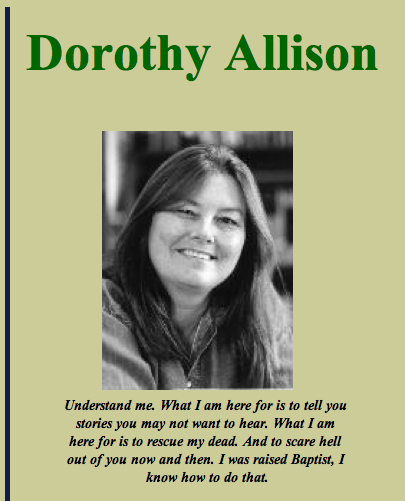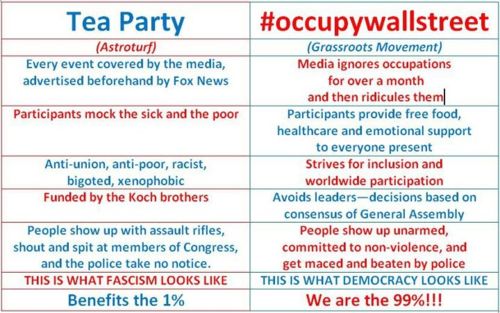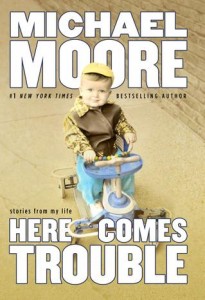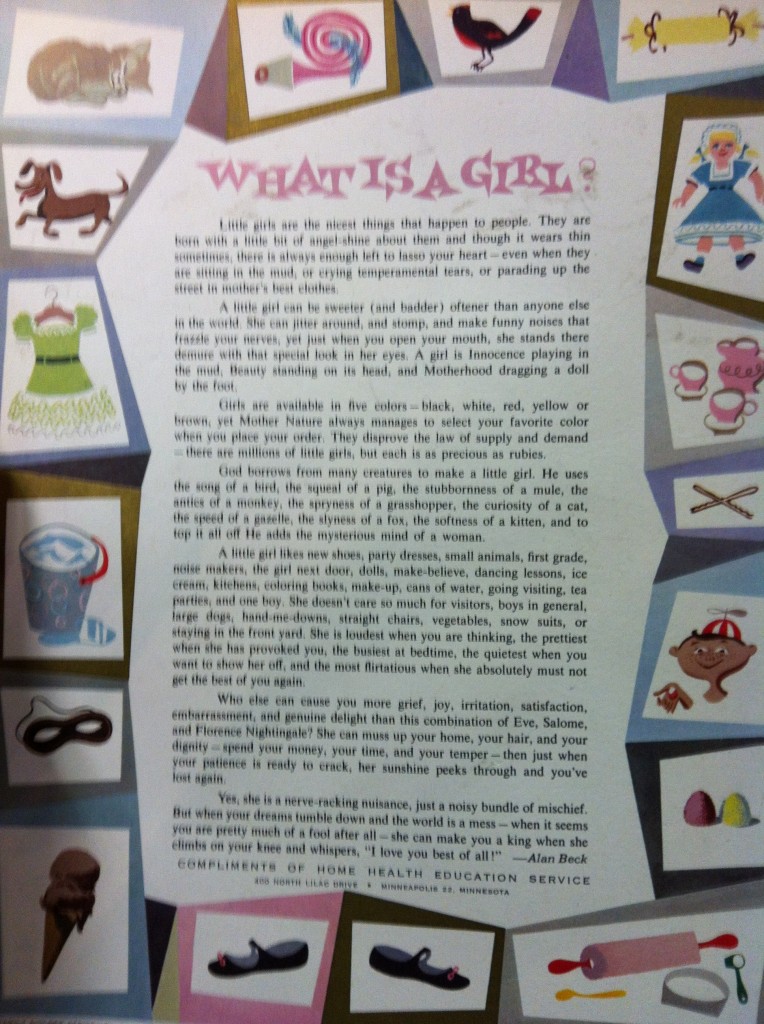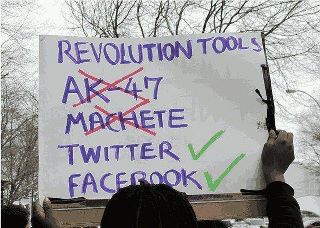Check out this sign that STA pointed out at an antique store in Duluth today.
Little girls are the nicest things that can happen to people. They are born with a bit of angel-shine about them, and though it wears thin sometimes, there is always enough left to lasso your heart—even when they are sitting in the mud, or crying temperamental tears, or parading up the street in Mother’s best clothes.
A little girl can be sweeter (and badder) oftener than anyone else in the world. She can jitter around, and stomp, and make funny noises that frazzle your nerves, yet just when you open your mouth, she stands there demure with that special look in her eyes. A girl is Innocence playing in the mud, Beauty standing on its head, and Motherhood dragging a doll by the foot.
God borrows from many creatures to make a little girl. He uses the song of a bird, the squeal of a pig, the stubbornness of a mule, the antics of a monkey, the spryness of a grasshopper, the curiosity of a cat, the speed of a gazelle, the slyness of a fox, the softness of a kitten, and to top it all off He adds the mysterious mind of a woman.
A little girl likes new shoes, party dresses, small animals, first grade, noisemakers, the girl next door, dolls, make-believe, dancing lessons, ice cream, kitchens, coloring books, make-up, cans of water, going visiting, tea parties, and one boy. She doesn’t care so much for visitors, boys in general, large dogs, hand-me-downs, straight chairs, vegetables, snowsuits, or staying in the front yard.
She is loudest when you are thinking, the prettiest when she has provoked you, the busiest at bedtime, the quietest when you want to show her off, and the most flirtatious when she absolutely must not get the best of you again. Who else can cause you more grief, joy, irritation, satisfaction, embarrassment, and genuine delight than this combination of Eve, Salome, and Florence Nightingale.
She can muss up your home, your hair, and your dignity—spend your money, your time, and your patience—and just when your temper is ready to crack, her sunshine peeks through and you’ve lost again. Yes, she is a nerve-wracking nuisance, just a noisy bundle of mischief. But when your dreams tumble down and the world is a mess—when it seems you are pretty much of a fool after all—she can make you a king when she climbs on your knee and whispers, “I love you best of all!”

